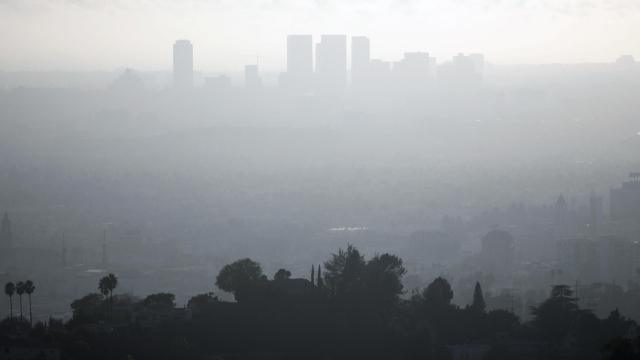Siler: So how did this experiment go?
Miller: According to state regulators, it went pretty well. In fact, Mary Nichols, who runs the agency, the California Air Resources Board, responsible for this regulation would go beyond that:
Mary Nichols: We're delighted by this. Our goal here is to reduce Carbon at a good price, in a way that is flexible for the companies that are covered, and we feel like we're showing, as we'd hoped and intended, that that is actually going to work.
MIller: I think that's relief, is what you're hearing. It does seem like a system that's going to work. And at the end of the day, there was actually -- for the first time ever -- a price for Carbon established in California, which was just a hair over ten dollars a metric ton. So if you've got ten bucks, you can go out and buy a ton of Carbon on the market in California now. That's just a little bit above the minimum that regulators set for the auction, however.
Siler: And what's the significance of that?
Miller: It's relatively low compared to what it could have been. Some would argue you want the price of Carbon to be very high, because you want to create a disincentive -- that's the whole idea here -- a disincentive for companies to be spewing it into the atmosphere. So you want to make it expensive for them to do that. But others would argue that in order to keep jobs and companies from potentially leaving California, rather than have to pay these fees, and to create a smooth transition to the program, it's not bad to have it relatively low, at least to start with.
Siler: Now right before this auction happened, the California Chamber of Commerce filed a lawsuit trying to invalidate the auction. Where is that at this point?
Miller: It's sitting there waiting for the courts to act. They make it very clear, they weren't trying to stop the auction. But ultimately they don't like the idea that the state is withholding allowances for itself and making companies buy them. They want those allowances to be given away for free to make it as easy as possible for companies to make this transition, and that's what they're hoping eventually the court will rule.
Siler: So where do we go from here? Are these auctions going to be a regular event and are they going to be so top-secret?
Miller: They are going to be a regular event. They probably will continue to be pretty confidential, too. The next one is in February. And then over time the market will decide what a ton of Carbon is worth. But yes, these will be regular events.
Siler: So the big question for Californians is, what's it going to cost us?
Miller: Kind of hard to say right now. Some of the pieces of that puzzle are coming together. On Friday the California Public Utilities Commission came out with a plan that will actually pay what they call a "climate dividend." If there's an increase in your electric rates as a result of cap-and-trade and the fees that companies are having to pay, you will get that money back in the form of a couple dividends every year, and might even make some money on the deal.
There's also speculation that in 2015 when this program expands to transportation fuels and other things beyond what it's covering now, it might increase the price of gasoline by about 18 cents, but that's not until 2015.
Siler: So this cap-and-trade program has been cited as an example of California's leadership on environmental policies. Is anybody following us at this point?
Miller: I talked with Mary Nichols a couple of years ago and asked her very specifically about this, and she said, "California will not go it alone on cap-and-trade." But we are right now. There are other states that were kind of lined up in this thing they call the Western Climate Initiative with intent to eventually consider joining, but right now there is nobody. The next one inline seems to be a Canadian province, Quebec.
